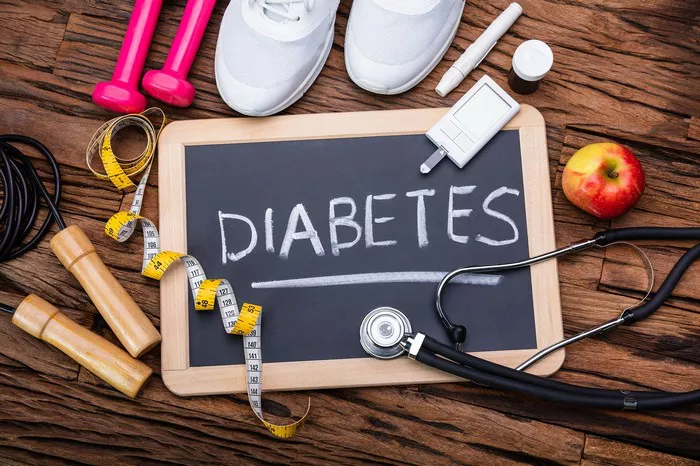Diet plays a pivotal role in the management of diabetes, a chronic condition characterized by high levels of blood sugar. Among various dietary components, carbohydrates have a significant impact on blood sugar levels, making them a focal point for individuals with diabetes. Understanding how different foods affect blood sugar, particularly fruits, is crucial for effective diabetes management.
Glycemic Index (GI) and Glycemic Load (GL): Guiding Fruit Choices
The Glycemic Index (GI) is a scale that ranks carbohydrate-containing foods based on how much they raise blood sugar levels after consumption compared to a reference food (usually glucose or white bread). Foods with a low GI are digested and absorbed more slowly, leading to a gradual rise in blood sugar levels, which is beneficial for individuals with diabetes. On the other hand, foods with a high GI cause a rapid spike in blood sugar levels, which can be problematic.
Glycemic Load (GL) takes into account both the quality and quantity of carbohydrates in a serving of food. It provides a more accurate measure of how a food affects blood sugar levels than GI alone. Foods with a low GL have a smaller impact on blood sugar levels, making them preferable for individuals with diabetes.
When choosing fruits for a diabetic diet, focusing on those with a low GI and GL is essential. These fruits are less likely to cause rapid fluctuations in blood sugar levels, promoting better glycemic control.
List of Recommended Fruits for Diabetics
Berries: Berries such as strawberries, raspberries, blueberries, and blackberries are excellent choices for diabetics. They are low in carbohydrates and high in fiber, antioxidants, and various vitamins and minerals. Their low GI and GL make them ideal for maintaining stable blood sugar levels.
Citrus Fruits: Oranges, grapefruits, lemons, and limes are citrus fruits rich in vitamin C and fiber. They have a moderate GI and GL, making them suitable for diabetic individuals when consumed in moderation.
Apples and Pears: These fruits are rich in soluble fiber, which helps slow down the absorption of sugar and cholesterol in the bloodstream. They have a relatively low GI and GL, making them suitable options for diabetics.
Cherries: Cherries are not only delicious but also low in calories and carbohydrates. They contain antioxidants known as anthocyanins, which have anti-inflammatory properties. Cherries have a low GI and GL, making them a diabetic-friendly fruit choice.
Peaches and Plums: These fruits are low in carbohydrates and calories, making them suitable for diabetes management. They are also rich in vitamins A and C, as well as fiber, which aids in digestion and helps control blood sugar levels.
Portion Control: Balancing Carbohydrate Intake
While fruits offer numerous health benefits, it’s crucial for individuals with diabetes to practice portion control. Monitoring carbohydrate intake is essential for managing blood sugar levels effectively. One serving of fruit should typically contain no more than 15 grams of carbohydrates to prevent spikes in blood sugar.
Practicing portion control can be challenging, especially when fruits are so naturally delicious and satisfying. However, measuring portions, such as using measuring cups or estimating portion sizes based on visual cues, can help individuals with diabetes maintain balanced carbohydrate intake.
Whole Fruits vs. Processed Fruits: Choosing Wisely
When incorporating fruits into a diabetic diet, opting for whole fruits over processed ones is advisable. Whole fruits contain more fiber and fewer added sugars compared to their processed counterparts. Avoiding fruits canned in syrups or with added sugars is crucial for managing blood sugar levels effectively.
Whole fruits provide a greater variety of nutrients and health benefits than processed fruits. They are also more filling, which can help control appetite and prevent overeating. Including a variety of whole fruits in the diet ensures a diverse intake of vitamins, minerals, and antioxidants.
Nutritional Benefits: Enhancing Overall Health
Fruits are nutrient-dense foods that offer a wide array of vitamins, minerals, and fiber, all of which are beneficial for overall health and well-being. The vitamins and minerals found in fruits play essential roles in various bodily functions, including immune function, metabolism, and tissue repair.
Fiber, particularly soluble fiber found in fruits, helps regulate blood sugar levels by slowing down the absorption of glucose in the bloodstream. Additionally, fiber promotes digestive health, aids in weight management, and reduces the risk of cardiovascular disease.
Practical Tips for Incorporating Fruits into the Diet
Incorporating fruits into the diet can be simple and enjoyable with a bit of creativity. Here are some practical tips for including fruits in meals and snacks:
Add Berries to Breakfast: Sprinkle berries on top of oatmeal, yogurt, or cereal for a burst of flavor and nutrients in the morning.
Snack on Fresh Fruit: Keep a bowl of fresh fruit on the counter or in the fridge for easy access to healthy snacks throughout the day.
Blend Fruits into Smoothies: Combine fruits with leafy greens, yogurt, and a source of protein for a nutritious and satisfying smoothie.
Use Fruit as a Natural Sweetener: Swap out processed sugars for natural sweetness by adding fruits like bananas or dates to baked goods or desserts.
Incorporate Fruits into Salads: Add slices of apple, pear, or citrus fruits to salads for a refreshing and nutritious twist.
Experiment with Fruit Salsas: Create flavorful salsas using fruits like mango, pineapple, or peach to pair with grilled chicken or fish.
Consultation with Healthcare Providers: Personalized Guidance
Individual responses to fruits can vary based on factors such as insulin sensitivity, medication use, and overall health status. Therefore, it’s essential for individuals with diabetes to consult with healthcare providers, such as registered dietitians or certified diabetes educators, for personalized dietary advice.
Healthcare providers can offer tailored guidance on carbohydrate intake, portion sizes, and meal planning strategies to help individuals with diabetes manage their condition effectively. By working closely with healthcare professionals, individuals can develop a customized nutrition plan that meets their unique needs and preferences while promoting optimal blood sugar control and overall health.
Conclusion
In conclusion, fruits can be an integral part of a healthy diet for individuals with diabetes when chosen wisely and consumed in appropriate portions. By focusing on fruits with low GI and GL, practicing portion control, opting for whole fruits over processed ones, and seeking guidance from healthcare providers, individuals with diabetes can enjoy the nutritional benefits of fruits while effectively managing their condition.
























